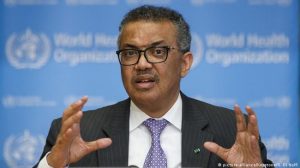The World Health Organisation (WHO) has congratulated the Hashemite Kingdom of Jordan for becoming the first country in the world to be officially verified as having eliminated leprosy. This significant milestone, according to the WHO, marks a new era in global public health efforts.

“WHO congratulates Jordan on this impressive milestone,” said WHO Director-General, Dr Tedros Adhanom Ghebreyesus. “Leprosy has afflicted humanity for millennia, but country-by-country we are stopping transmission and freeing individuals, families and communities from its suffering and stigma.”
“Jordan’s elimination of this age-old disease is a historic milestone in public health and a huge success for efforts to eliminate leprosy globally,” said Saima Wazed, WHO Regional Director for South-East Asia who heads WHO’s Global Leprosy Programme. “The fight against leprosy around the world is more than a fight against a disease. It is also a fight against stigma, and a fight against psychological and socio-economic harm. I congratulate Jordan on its achievement.”
Jordan has not reported any autochthonous cases of leprosy for over two decades, a testament to its strong political commitment and effective public health strategies to eliminate the disease.
Following up on the Ministry of Health’s interest in verifying the elimination of leprosy, WHO commissioned an independent team to assess this situation. After an extensive review, the verification team recommended that WHO acknowledges leprosy has been eliminated in Jordan.
“Jordan’s elimination of leprosy is an achievement that will transform the discourse around this age-old, stigmatising disease,” said WHO Regional Director for the Eastern Mediterranean, Dr Hanan Balkhy. “As the first country to achieve this target globally, Jordan stands as an inspiration to other countries, encouraging them to enhance their efforts and overcome barriers to achieve this remarkable feat.”
Jordan’s success sets a worldwide precedent, showcasing what can be achieved with strong political commitment, dedication, collaboration and strategic planning.
Although Jordan has successfully eliminated leprosy, the WHO and Ministry of Health both stress the importance of maintaining robust surveillance systems to detect and manage future potential cases, including foreign-borne cases, without discrimination.
“Jordan’s journey highlights the power of sustained efforts in public health and the potential of global collaboration to overcome even the most challenging public health issues,” said WHO Representative to Jordan, Dr Jamela Al-Raiby.
“This success was made possible by the leadership of the Ministry of Health, strong collaboration between WHO and the Ministry, and technical support provided by WHO at all three levels. We remain committed to continuing our support for Jordan, addressing its needs and empowering it to ensure the sustainability of this success which adds to the list of public health achievements Jordan has accomplished,” added Al-Raiby.
Leprosy, also known as Hansen’s disease, is a chronic infectious disease caused by Mycobacterium leprae. It primarily affects the skin, peripheral nerves, mucosal surfaces of the upper respiratory tract and eyes. Left untreated, leprosy can cause permanent damage to the skin, nerves, limbs and eyes. Early diagnosis and treatment can prevent disability.
Leprosy is a neglected tropical disease (NTD) which still occurs in more than 120 countries. More than 200,000 new cases are reported every year.
